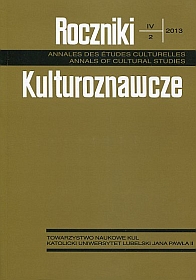The Phenomenon of Girard
Abstract
Is he one of the really great thinkers or a dilettante? René Girard’s person and work divide opinions. His approach to reach scientific insight seems too radical. He is one of the few intellectuals who not only intentionally transgress the boundaries between disciplines but also place the quest for truth at the center of the process of gaining knowledge. He talks unashamedly about the importance of conversion for the process of developing theories as well as for one’s personal biography. As a scholar of literature he does not limit his scope to texts but develops an anthropology. His theory about the dead ends of mimetically structured human desire leads to a theory of religion and culture. His fundamental thesis that the scapegoat mechanism is at the root of both archaic religion and today’s social structures bridges the divergent theories about the genesis of archaic and modern cultures. The mythological core of this mechanism hides the victims produced in order to stabilize and pacify a society. In contrast to this logic of myth, the “true God” reveals an outline for an alternative culture: it is not based on the rationality of the scapegoat mechanism but it is supported by an intentional mindset of reconciliation. This description of the relationship between myths and revelation also bridges the gap between religious and cultural studies on the one hand and theology on the other. Not only for these reasons, one can say Girard is a great thinker of the present.
References
Bailie G.: Violence Unveiled. Humanity at the Crossroads. New York: Crossroad 1996.
For René Girard: Essays in Friendship and in Truth. (Studies in Violence, Mimesis, & Culture). Ed. S. Goodhart, J. Jorgensen, T. Ryba, J. Williams. East Lansing: Michigan State University Press 2009.
Girard R.: Mensonge romantique et vérité romanesque. Paris: Grasset 1961. Wydanie polskie: Prawda powieściowa i kłamstwo romantyczne. Tł. K. Kot. Warszawa: KR 2001.
Girard R.: La violence et le sacré. Paris: Grasset 1972. Wydanie polskie: Sacrum i przemoc. Tł. M. i J. Plecińscy. Poznań: Brama 1993/1994.
Girard R.: Des choses cachées depuis la fondation du monde. Paris: Grasset 1978. Po polsku fragmenty przełożone przez M. Goszczyńską ukazały się pt. Rzeczy ukryte od założenia świata na łamach „Literatury na świecie” (1983 nr 12 s. 74-182)
Girard R.: La Route antique des hommes pervers. Paris: Grasset 1985. Wydanie polskie: Dawna droga którą kroczyli ludzie niegodziwi. Tł. M. Goszczyńska. Warszawa: Spacja 1992.
Girard R.: Quand ces choses commenceront… Entretiens Alec Michel Treuger. Paris: Arléa 1994.
Girard R.: Je vois Satan tomber comme l’éclair Paris: Grasset 1999. Wydanie polskie: Widziałem szatana spadającego z nieba jak błyskawica. Tł. E. Burska. Warszawa: PAX 2002.
Scheler M.: Vom Ewigen im Menschen. (Gesammelte Werke Bd. 5). München 1968.
Schwager R.: Brauchen wir einen Sündenbock? Gewalt und Erlösung in biblischen Schriften. München: Kösel-Verlag 1978.
Schwager R.: Jesus im Heilsdrama. Entwurf einer biblischen Erlösungslehre. Innsbruck: Tyrolia 1991.
Violence et vérité: Autour du René Girard. Colloque de Cerisy sous la direction de Paul Dumouchel, 1983. Paris: Grasset 1985.
Williams J.G.: Girardians. The Colloquium on Violence and Religion, 1990-2010. Wien–Berlin: LIT Verlag 2012.





